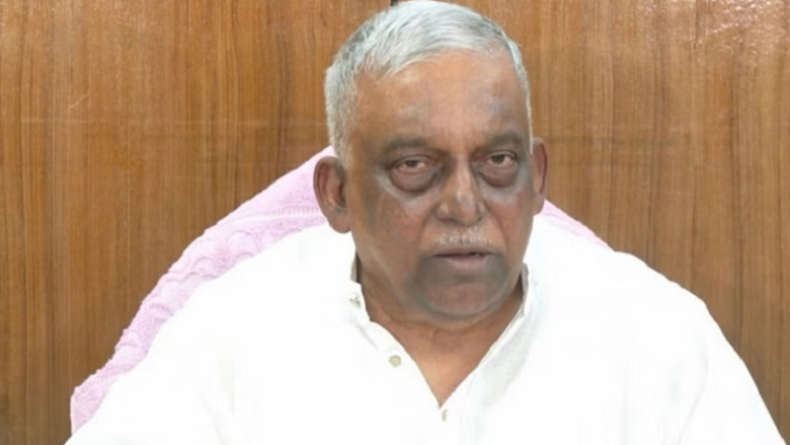
Former Home Minister Asaduzzaman Kamal reportedly sentenced to death over allegations of crimes against humanity

The International Crimes Tribunal has sentenced former Home Minister Asaduzzaman Khan Kamal to death in a case involving crimes against humanity during the July Mass Uprising. In the same verdict, the tribunal also handed a death sentence to ousted Prime Minister Sheikh Hasina.
According to the tribunal, the charges against all three accused—including Sheikh Hasina—have been proven. Sheikh Hasina received death sentences on two counts, while Asaduzzaman Khan Kamal received one death sentence. Former Inspector General of Police Chowdhury Abdullah Al-Mamun, who acted as an approver (state witness), was sentenced to five years in prison.
The ruling was delivered on Monday (17 November) by Tribunal-1, led by Justice Md. Golam Mortuza Mojumder, with Justice Md. Shafiul Alam Mahmud and Judge Md. Mohitul Haque Enam Chowdhury serving as the other members of the three-judge panel.
This is the first judgment related to killings and other crimes against humanity allegedly committed during the July uprising. At 12:40 pm, Judge Enam Chowdhury began reading the first part of the 453-page judgment, divided into six chapters. After about two hours and ten minutes, the tribunal announced the sentences against Sheikh Hasina and Asaduzzaman Khan Kamal at 2:50 pm.
Following the fall of the Awami League government on 5 August 2024, the International Crimes Tribunal was reconstituted. The first case taken up by the reorganized tribunal was the one against Sheikh Hasina, concerning crimes allegedly committed during the July uprising. The tribunal held its first hearing on 17 October last year, issuing an arrest warrant for Sheikh Hasina on the same day.
Initially, Sheikh Hasina was the sole accused. On 16 March this year, prosecutors applied to add former IGP Chowdhury Abdullah Al-Mamun as a co-accused, which the tribunal approved.
After several extensions, the tribunal’s investigation agency submitted its report to the Chief Prosecutor’s Office on 12 May. On 1 June, the prosecution formally filed charges against Sheikh Hasina, Asaduzzaman Khan, and Al-Mamun, with a total of five allegations.
The charges included:
-
Delivering inciting remarks at a press conference at Ganabhaban on 14 July last year,
-
Ordering the use of helicopters, drones, and lethal weapons against protesting students and civilians,
-
The shooting death of Abu Saeed, a student at Begum Rokeya University in Rangpur,
-
The killing of six demonstrators in Dhaka’s Chankharpul area, and
-
The burning of six people in Ashulia.
Sheikh Hasina and Asaduzzaman Khan remain fugitives, while former IGP Al-Mamun is the only one in custody. On the day charges were framed (10 July), Al-Mamun admitted involvement in crimes during the uprising and applied to serve as an approver (state witness).
The tribunal began hearing arguments on 12 October, which concluded on 23 October. Chief Prosecutor Tajul Islam demanded death sentences for Sheikh Hasina and Asaduzzaman Khan. State-appointed lawyer Md. Amir Hossain, representing both fugitives, requested acquittal, while Al-Mamun’s lawyer Zayed Bin Amjad also sought his client’s acquittal despite his approver status.
Publisher: Mustakim Nibir
Copyright © 2025 The Times OF Dhaka. All rights reserved.